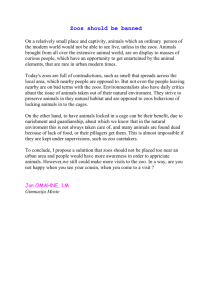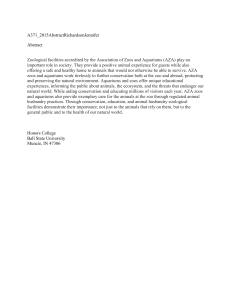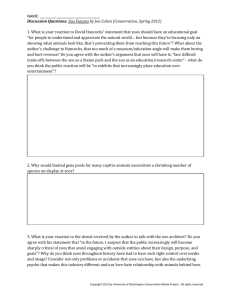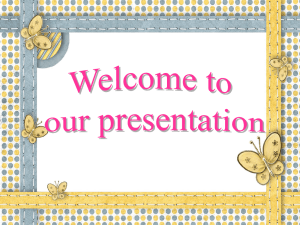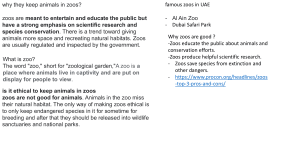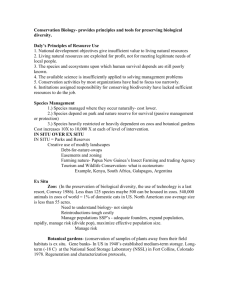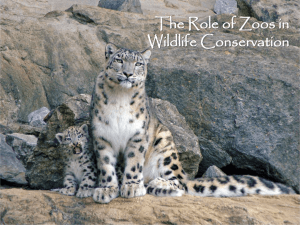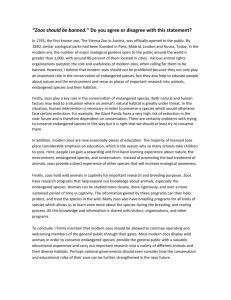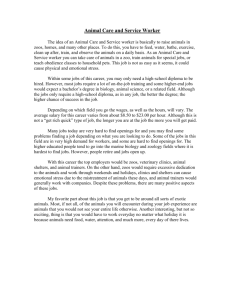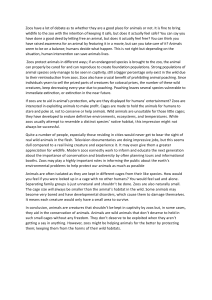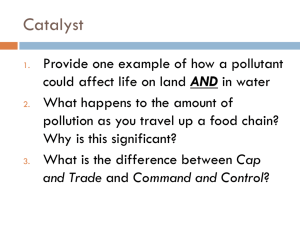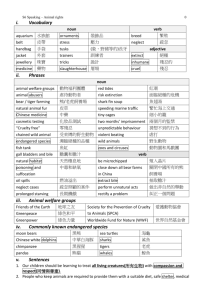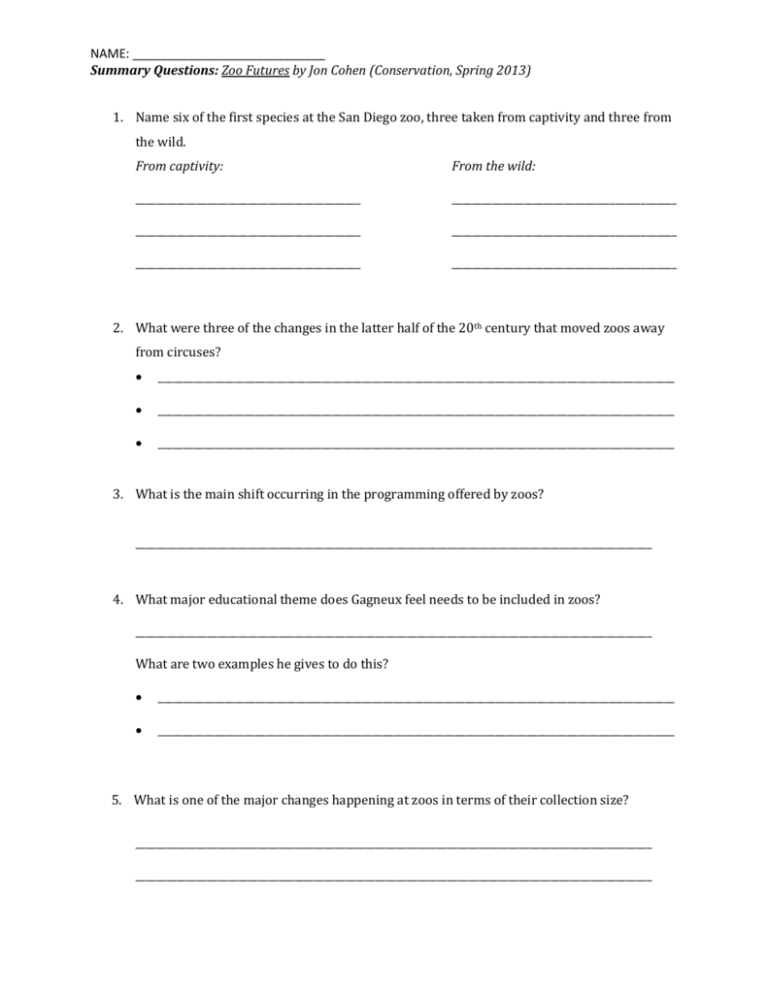
NAME: ____________________________
Summary Questions: Zoo Futures by Jon Cohen (Conservation, Spring 2013)
1. Name six of the first species at the San Diego zoo, three taken from captivity and three from
the wild.
From captivity:
From the wild:
____________________________________________
____________________________________________
____________________________________________
____________________________________________
____________________________________________
____________________________________________
2. What were three of the changes in the latter half of the 20th century that moved zoos away
from circuses?
_____________________________________________________________________________________________________
_____________________________________________________________________________________________________
_____________________________________________________________________________________________________
3. What is the main shift occurring in the programming offered by zoos?
_____________________________________________________________________________________________________
4. What major educational theme does Gagneux feel needs to be included in zoos?
_____________________________________________________________________________________________________
What are two examples he gives to do this?
_____________________________________________________________________________________________________
_____________________________________________________________________________________________________
5. What is one of the major changes happening at zoos in terms of their collection size?
_____________________________________________________________________________________________________
_____________________________________________________________________________________________________
Summary Questions: Zoo Futures by Jon Cohen (Conservation, Spring 2013)
6. What is a “species survival plan”?
_____________________________________________________________________________________________________
_____________________________________________________________________________________________________
What is the biggest challenge facing implementing one?
____________________________________________________________________________________________________
____________________________________________________________________________________________________
What does William Conway suggest zoos must do in order to do more for wildlife species?
____________________________________________________________________________________________________
____________________________________________________________________________________________________
7. What is unique about the Elephant Odyssey exhibit?
____________________________________________________________________________________________________
____________________________________________________________________________________________________
Copyright 2013 by University of Washington Conservation Media Project. All rights reserved.
Summary Questions: Zoo Futures by Jon Cohen (Conservation, Spring 2013)
ANSWERS
1. CAPTIVITY: Bear from US Navy ship, hyena from local menagerie, alligator from local pool,
chimpanzee “Snooky.” WILD: Seals, orangutans and gibbons from Southeast Asia, jaguars from
the Amazon, white pelicans from Salton Sea.
2. Getting rid of performing animals and animal rides, hiring keepers with academic training,
creating more humane and “natural” habitats, investing in captive breeding programs and
conservation programs.
3. From entertainment to education, science, and conservation
4. Evolution. His suggestions: phylogeny signs, and stories on co-evolution such as the fig and
wasp.
5. Shrinking collections in terms of numbers of species. The International Crane Foundation has
15 species of cranes, Idaho’s Zoo Boise has 83 species and 201 animals.
6. An ‘ark’-like concept that zoos have diverse breeding populations in zoos that will buffer
wildlife loss. Challenge: There isn’t enough space for the breeding and raising of animals in
zoos. Conway suggests zoos must do more to protect animals in the wild: in-country
investment for in-country conservation.
7. It blends live animal exhibits with concepts of evolution and extinction by including sculptures
of the animals’ extinct ancestors.
Copyright 2013 by University of Washington Conservation Media Project. All rights reserved.

